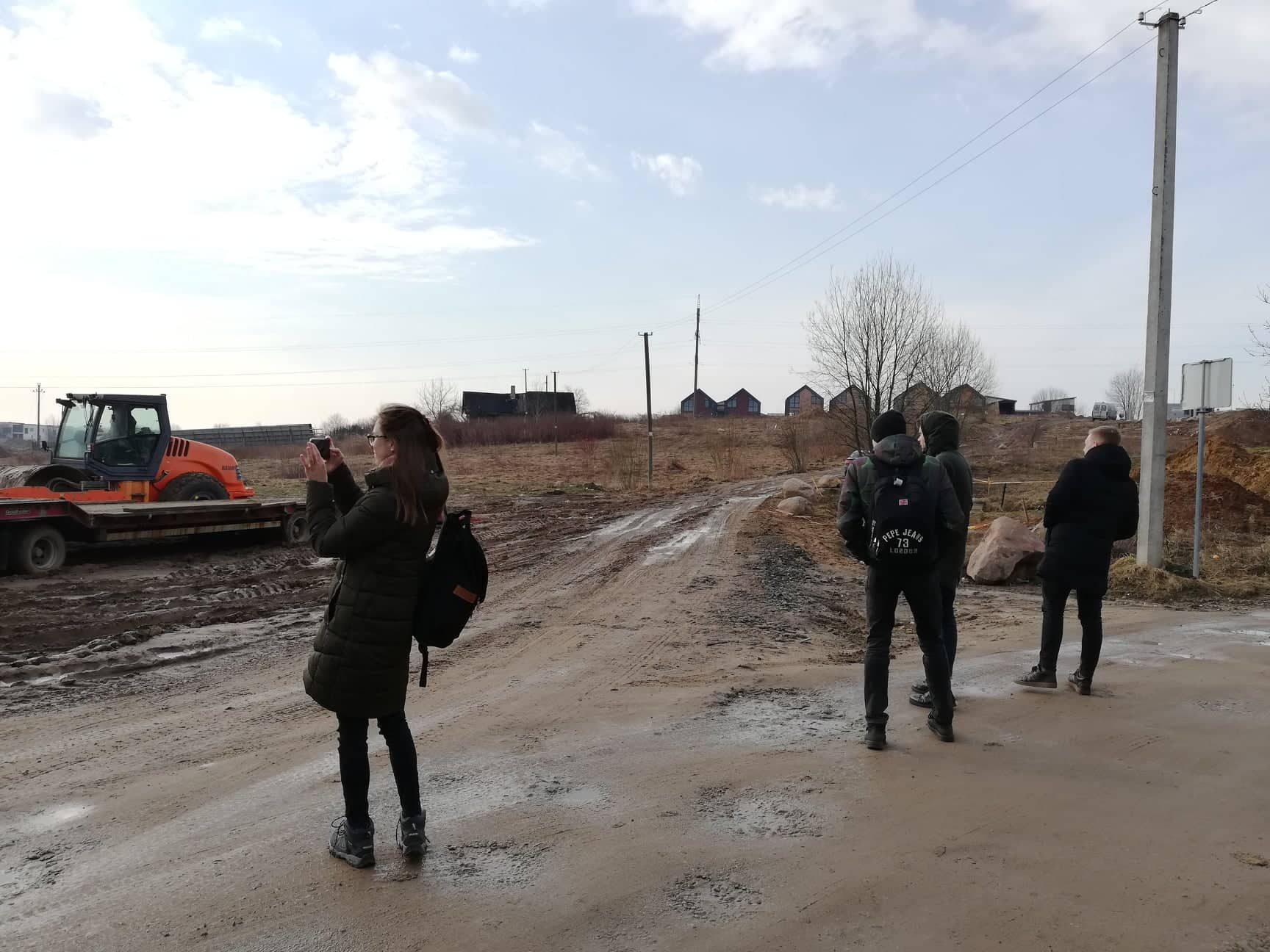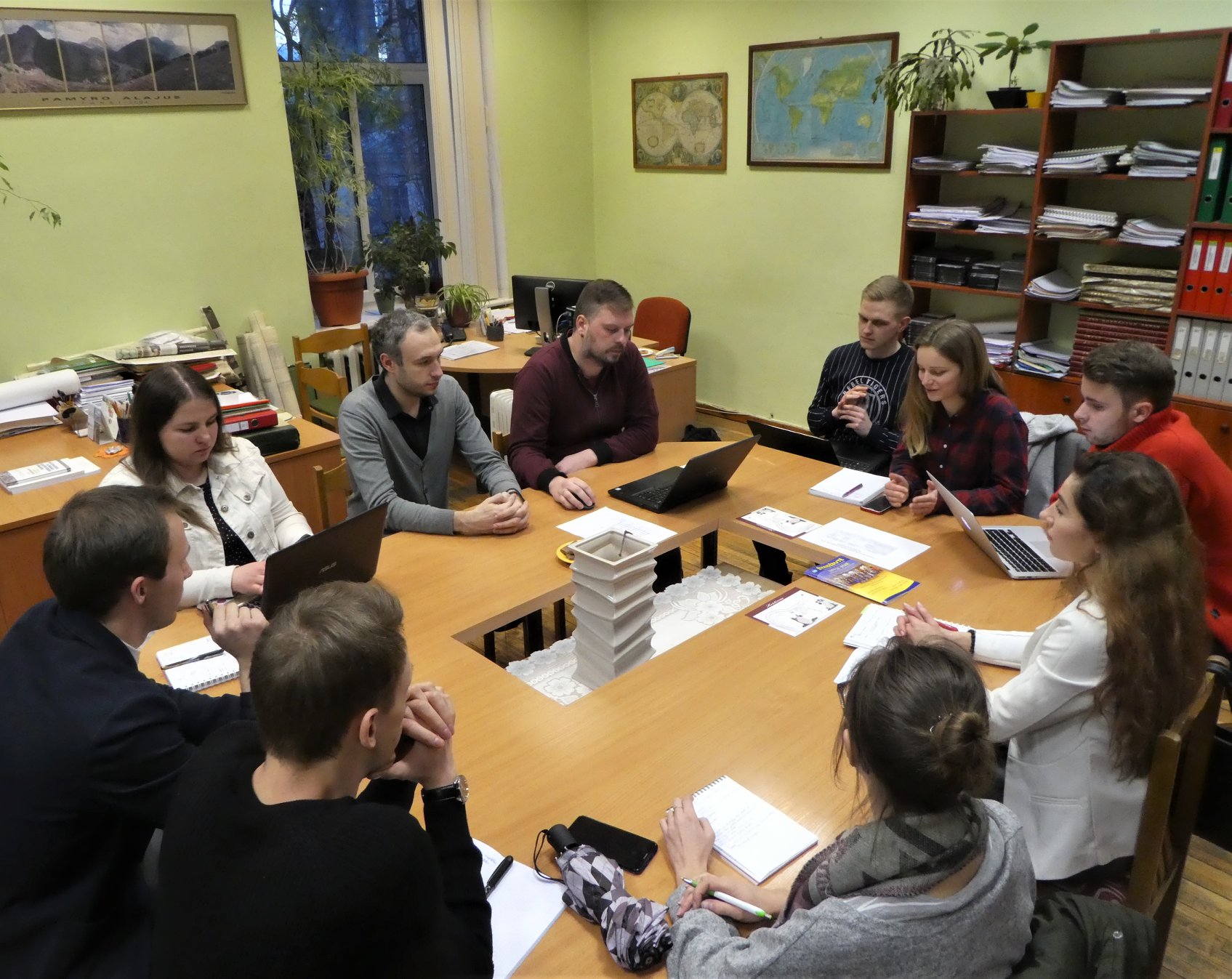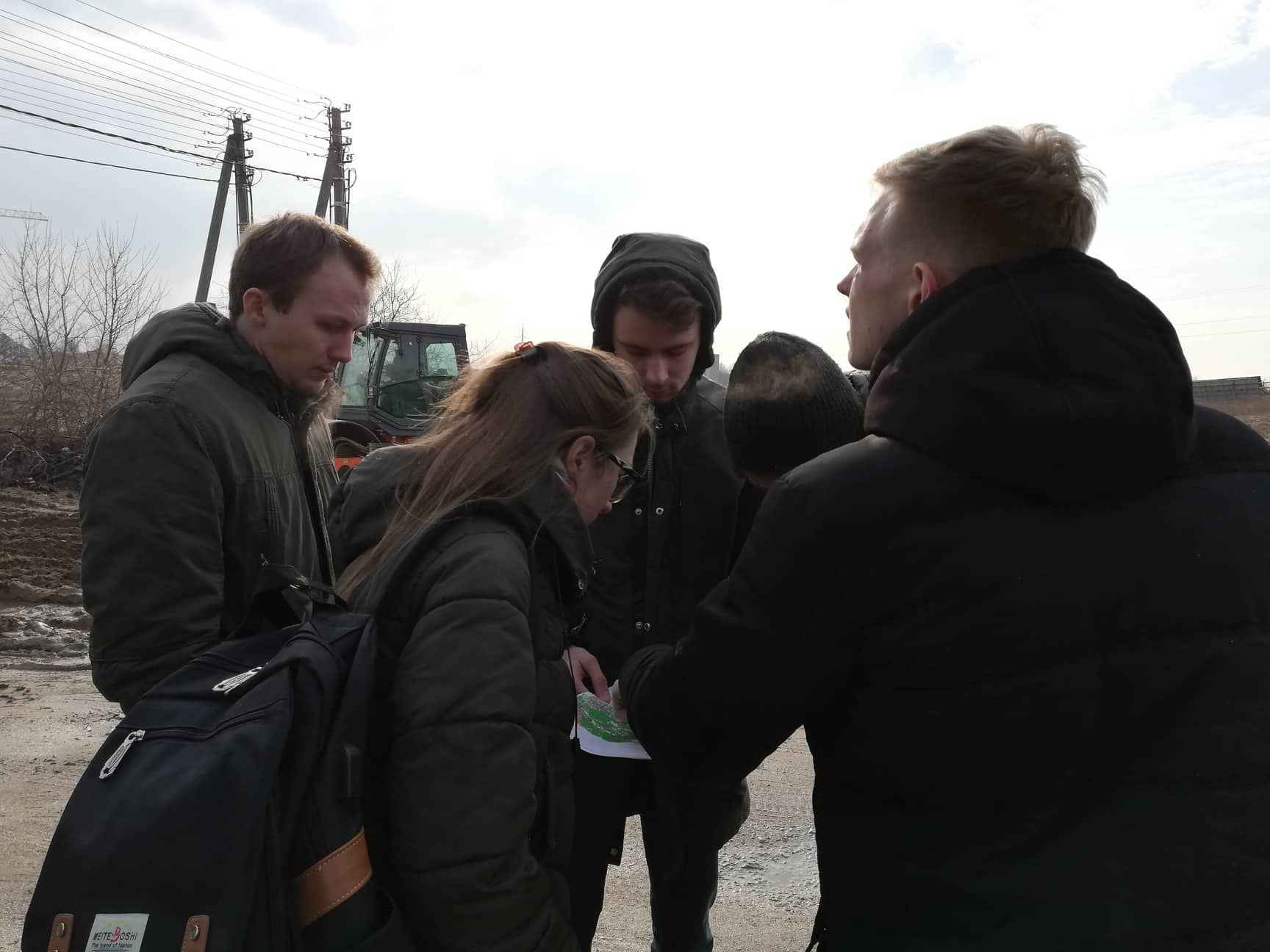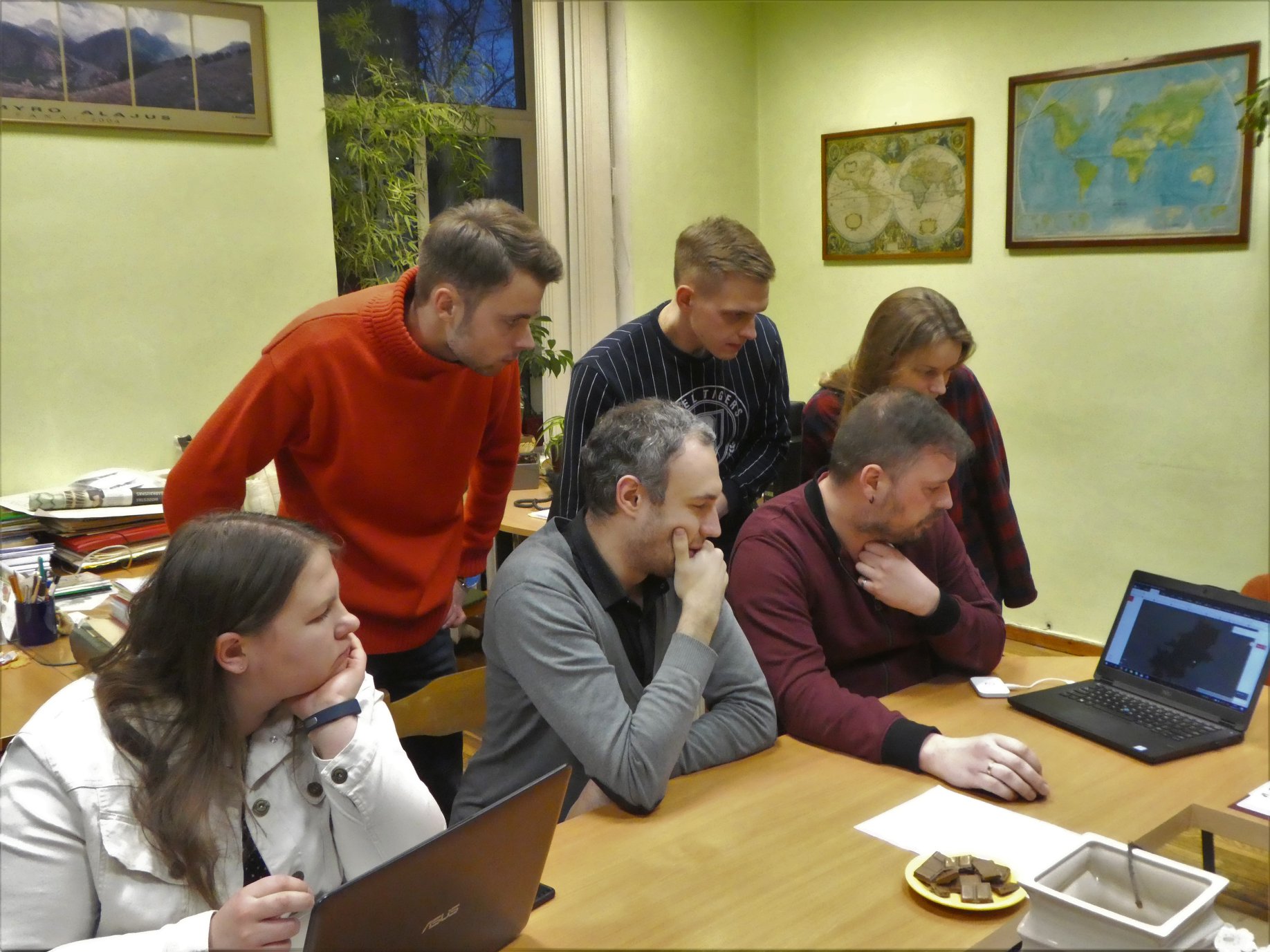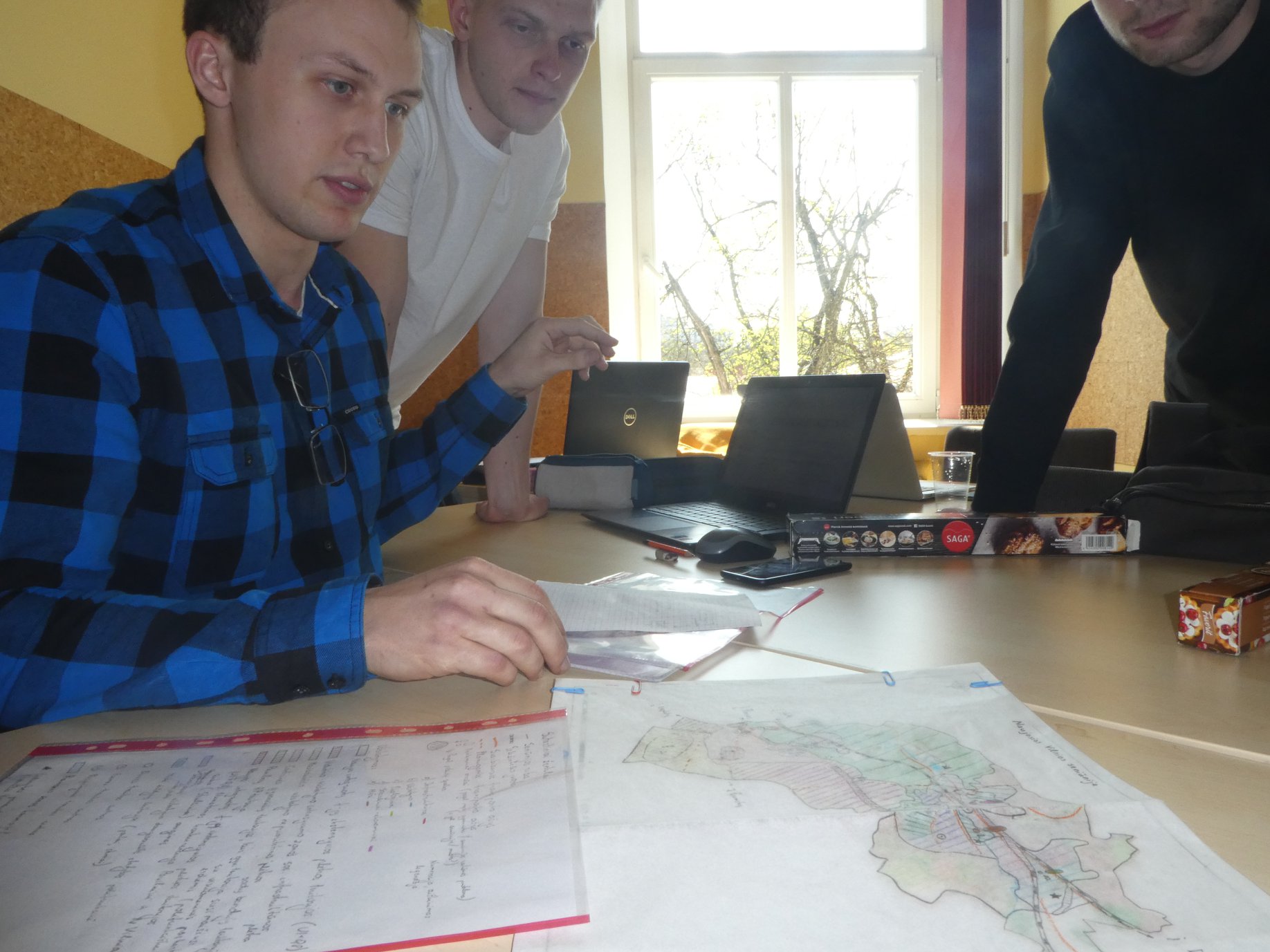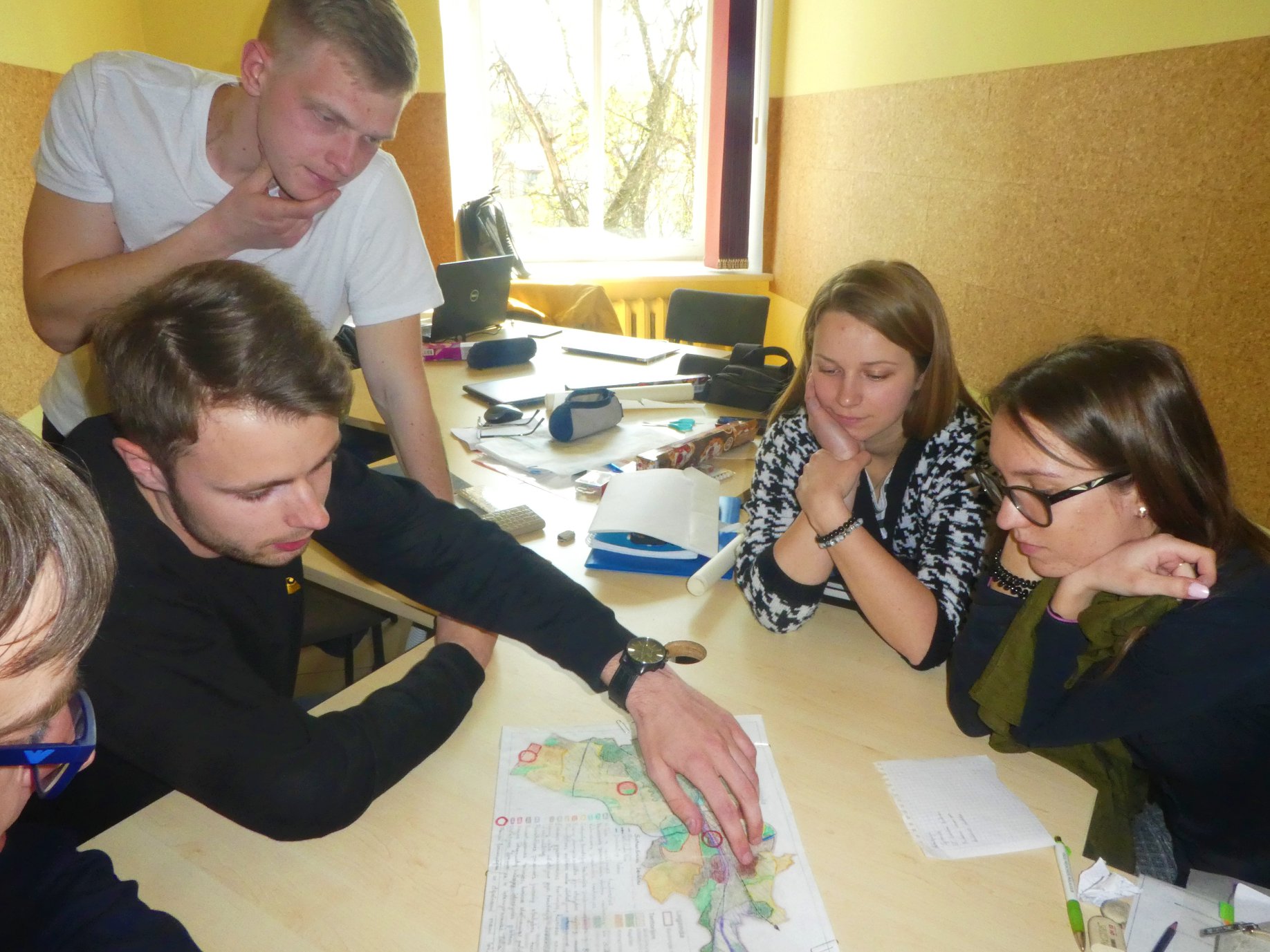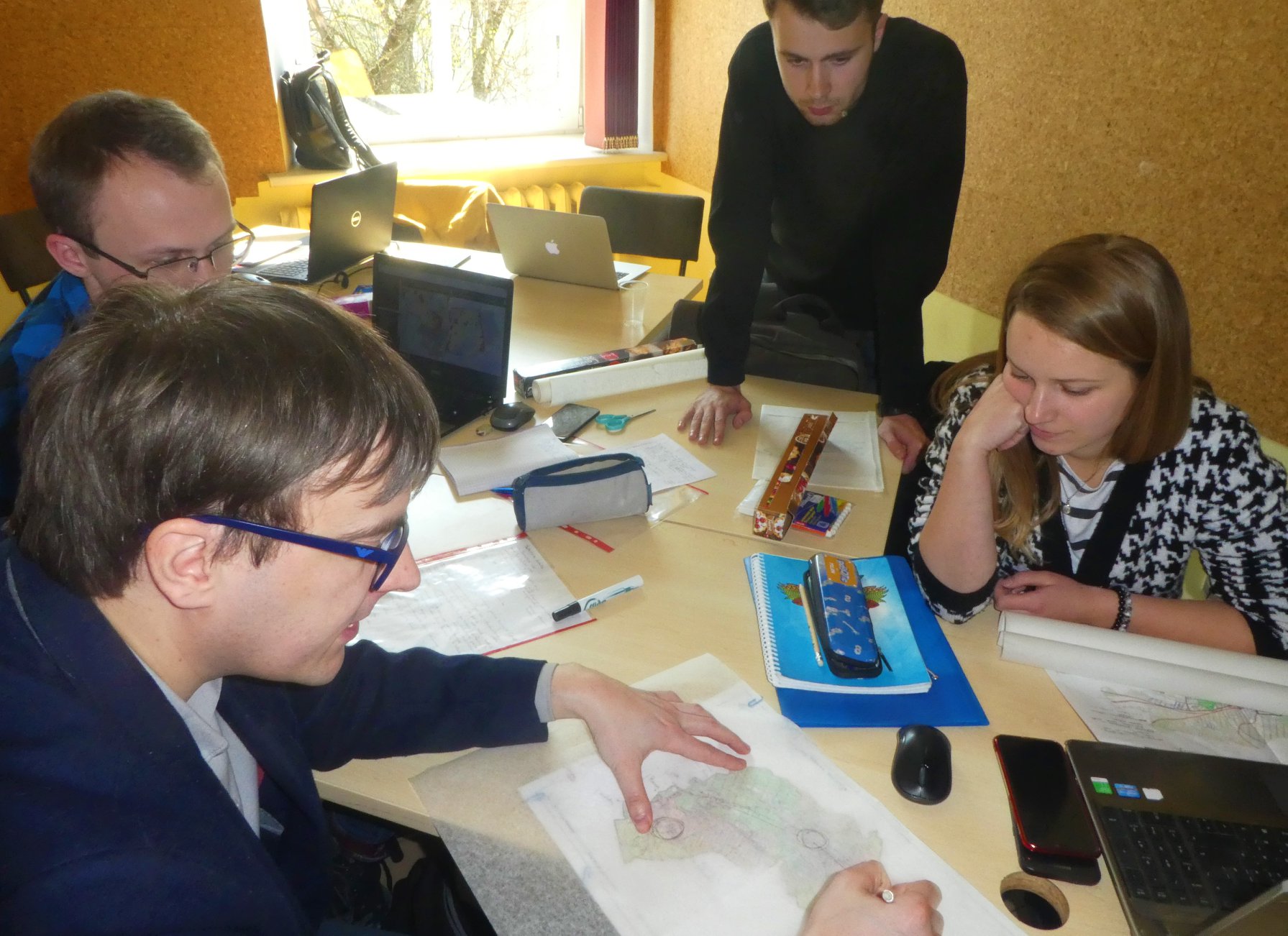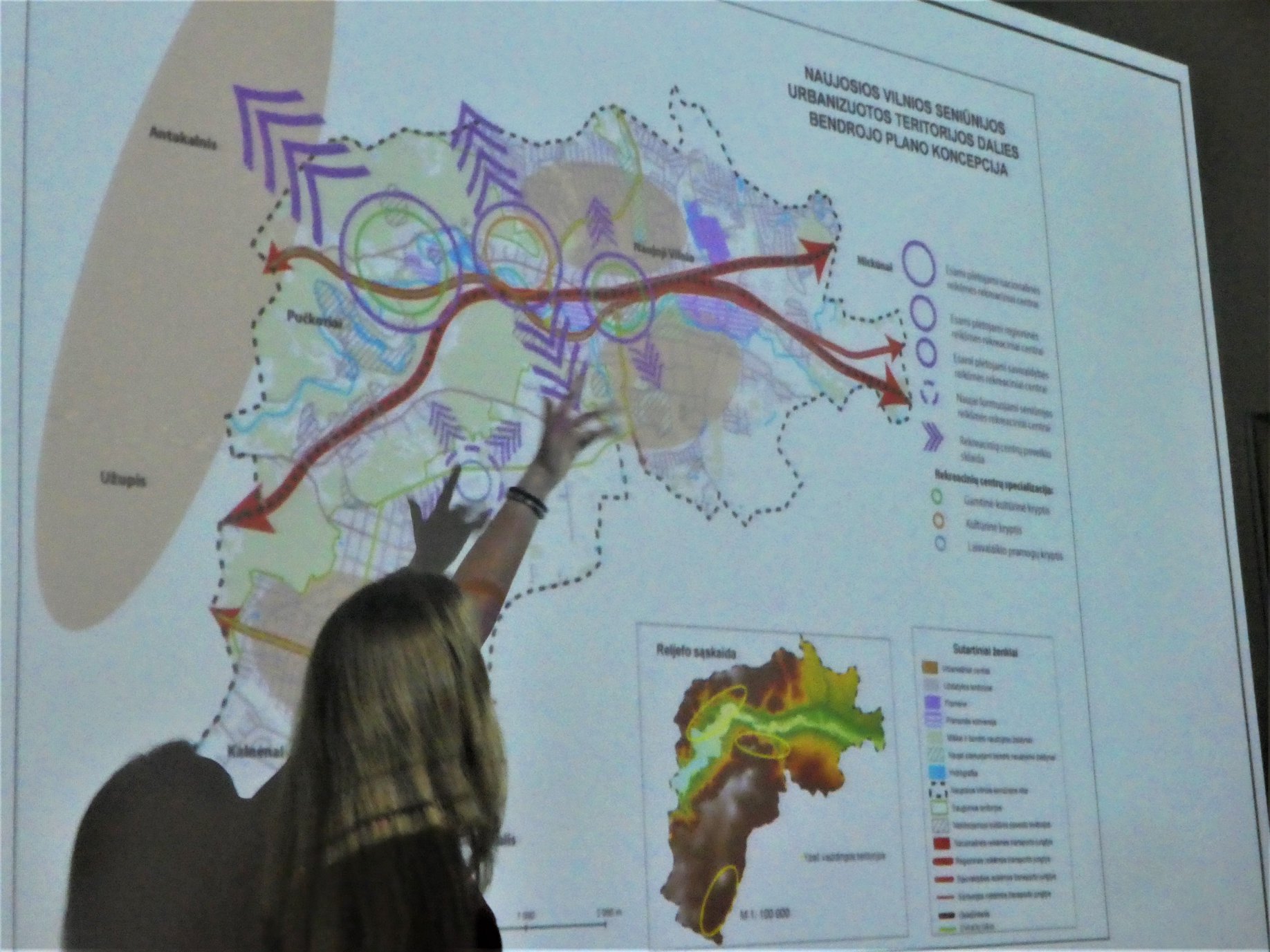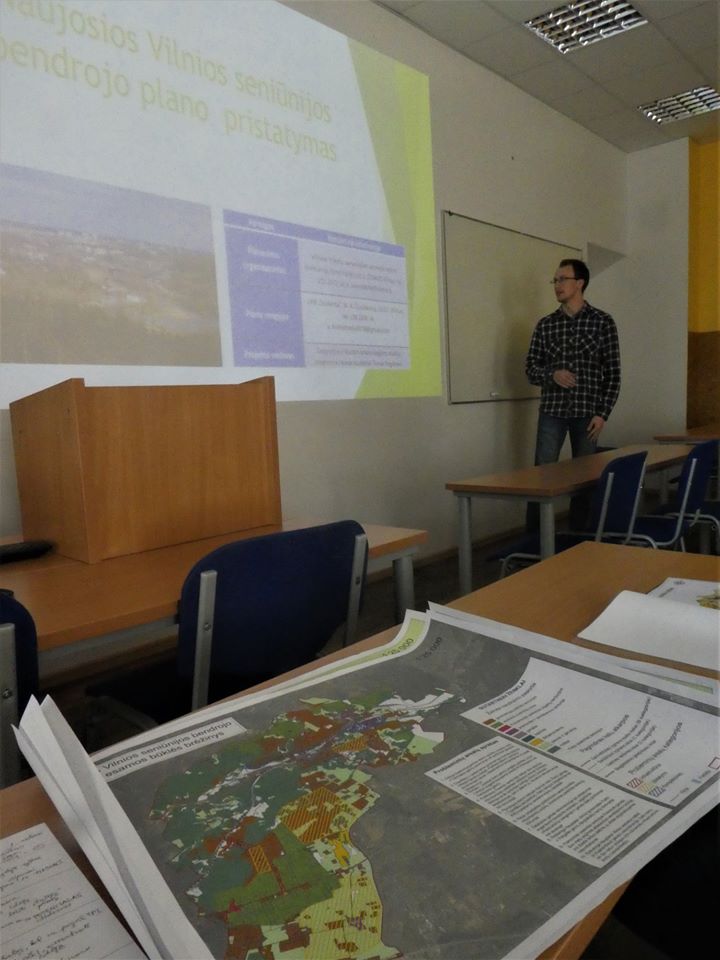We invite you to study GEOGRAPHY at Vilnius University, where classical fundamental geosciences are developing with the help of modern technologies! We warmly welcome those, who are willing to become experts in the Earth's natural and social phenomena, understand and deal with climate change, pollution, ecosystem, cultural landscape protection, migration, urban and regional development issues. Associate professor Regina Prapiestienė says that "by learning geography, a curious person can immediately apply this knowledge in practice and get answers to their "why"".
Alumni Ph.D. Gintarė Pociūtė-Sereikienė: "Geography studies at VU are associated with freedom for me - to think, to speak, to choose a pleasant topic and to study it in my written works. The teacher here is a "guide" that reveals the basics and allows you to think critically, take an interest, draw your own conclusions, discuss and even argue."
Contribute to the geographical scientific community, become a geography teacher, spatial planning specialist, environmentalist, GIS practitioner, environmental impact assessment expert! Geographers in various sectors create the country, represent self-government, work in non-governmental organizations, offer solutions to communities, build their own businesses. Geographical knowledge is useful in the economy, tourism, real estate, logistics companies, etc.

First stage studies (4 years)
Bachelor’s degree integrated studies -> Geography
|
|
Second stage studies (2 years)
Master’s degree studies -> Geography and territory planning
|
The Master's degree program of Geography and Territorial Planning is a two-year program, the only one in Lithuania that combines the social, geographical, and territorial planning disciplines needed for the management of different areas. Students learn to conduct scientific and applied research, develop environmental projects. They master GIS, independently prepare the project of spatial planning, get acquainted with strategic planning and regional policy, ecosystem services, public and landscape developments, land, water, and forest management. All students carry out a month-long internship at a selected institution. The study program of Geography and Territorial Planning is constantly being updated and current issues and student assessments are always taken into account. The biggest advantages of this program are extensive and diverse education, love for nature and cultural heritage, concern about the future of the country and its people, active citizenship, management skills. Under the Erasmus exchange program students with good foreign languages skills have the opportunity to go on short-term studies or internships of up to 6 months to universities in other countries. After obtaining the master's degree in social sciences, the graduate can work in various public and private institutions and organizations whose activities are related to sustainable development problems, environmental and social research, planning, or management. The graduate can choose to continue doctoral studies in our country or abroad. The Department is particularly proud of its graduates who have become the Prime Minister, Ministers, Secretaries of Ministers, Directors of Services or Departments or accomplished other senior positions in public and private institutions. These are E. Gentvilas, V. Auglys, D. Miniataitė, K. Sadauskas, V. Bezaras, I. Kiškis, R. Baškytė, G. Raščius, J. Ignatonis, R. Kačinskas, V. Turonis, E. Deinoravičius and many others. |
PROFESSORS ABOUT THE SUBJECTS THEY TEACH
Spatial Planning Law. Ph.D. Giedrė Godienė.
Spatial planning law is a subject in which students increase their legal literacy, which is essential for professional planners. While studying, students learn to distinguish between a plan - as a map describing the current situation, and a plan - as a spatial planning document, a legally binding agreement governing the use and development of the space. This subject allows students to understand how knowledge of the area can help preserve values, bring together the interests and different needs of present and future generations. Knowledge of spatial planning law helps different organizations and individuals to communicate in search of the best solutions for spatial development. Geographers can express their professional opinion, represent the states or their own property and interests, defend their rights as residents, and always seek legally sustainable development. This subject is necessary for everyone who has real estate cares about the management of city parks, and is concerned whether the high-intensity street will not be too close / too far from their home. It is for everyone who wants to change, create or save something in their park, city, district, or across the country!
Research Methodology. Assistant professor Rasa Šimanauskienė, professor Giedrė Beconytė.
The course of the research methodology aims to provide students with knowledge of research methods used in geographical research and teach students to work independently. The course develops the ability to communicate scientific information clearly, reasonably, and accurately orally and in writing to different audiences. Another ability acquired in this course is to identify the problem of the research, independently plan and conduct research as well as creatively apply known methods of analysis when working individually or in groups. Students also learn to present projects and research results, write reviews, evaluate, discuss and reach compromises.
Spatial Planning Methodology. Ph.D. Simonas Šabanovas.
Spatial planning is an opportunity to apply complex knowledge in a geographical area. Here students learn to anticipate the directions and solutions of development or management for urban, regional, environmental, or landscape planning. These skills are useful for workers in protected areas as well as in urban planning. After all, this is where students plan spaces for the first time!
Applied Territory Research and GIS. Professor Dovilė Krupickaitė, professor Darijus Veteikis, Ph.D. Laurynas Jukna, assistant professor Rolandas Tučas.
Whether you will work in a state-owned enterprise, business organization, or will be a freelance worker, there will inevitably be a need to justify one or another decision. Especially if these decisions are related to the use or development of the territory. This subject is designed to introduce students to a wide range of practical applied geographical (both natural environment and social) research methods. Students have a chance to put some of these research methods into practice. They also learn to present research results using GIS technologies.
The Development of the Lithuanian Landscape. Assistant professor Filomena Kavoliutė.
The Lithuanian landscape is a painting created by many generations on always changing and evolving fabrics. The course is designed to get acquainted with the evolution of the Lithuanian landscape.
Regional Development and Regional Politics. Professor Donatas Burneika.
The subject allows students to understand the causes of territorial inequality and its consequences for the sustainable development of society as well as introduces students to the means by which these problems can be solved. Students look for an answer to the question of why people in different places are not equally successful and happy and how to change that if it is possible at all.
Theories of Social Geography. Professor Donatas Burneika.
The subject allows to understand how the theoretical boundaries of geographical cognition have changed over the last century. During lectures, students find out how geographers from different countries have been learning about the factors that cause the world to change. The knowledge acquired during the course allows students to understand the impact of their research in the field of geographic research and to plan their careers for the future.
The Services of Ecosystems. Ph.D. Ieva Misiūnė.
The services of ecosystems are benefits taken from nature and used for humans' needs. The course introduces this concept, analyses the interaction of the socio-economic system with the natural system, introduces methods and tools to measure and evaluate the available ecosystem services as well as predict the consequences of human activities. When using the knowledge acquired in this course and the management based on ecosystem services, the professional can more accurately and efficiently evaluate and manage different national and local territories.
Strategic Planning (Faculty of Economics). Assistant professor G. Dzemydaitė.
The course of strategic planning is focused on the development of competencies at the management level. This course develops the ability to assess the state's strategic problems and decide on the right strategic decisions. It also gives a chance for students to acquire practical skills when preparing strategic documents and plans as well as monitor their implementation.
Forest Management and Greenery Planning. Assistant professor Ričardas Skorupskas.
During the course, students learn what functions forests perform and how to take care of them so that the benefits are multi-purpose. They get acquainted with the greenery system of anthropogenically assimilated territories and its separate components, the main principles of greenery formation, as well as the functions they perform.
Land Management (includes study trips). Assistant professor Ričardas Skorupskas, assistant professor Filomena Kavoliutė.
During the course, students learn that any action related to land use starts with the land management process. This process addresses contemporary and historical land account issues that are relevant in historical times and especially today when shaping an ecologically viable, comfortable, cost-effective, and aesthetic landscape is more important than ever before.
Water Management. Assistant professor E. Stonevičius.
The subject of water management is designed to provide the knowledge and skills needed to implement sustainable development projects that seek to reconcile the needs of nature and society. This course also focuses on implementing the Water Framework Directive and managing the risk of dangerous phenomena. During these lectures, students can expect discussions and group work.
Anthroposphere and Sustainable Development. Professor Darijus Veteikis, assistant professor Jonas Volungevičius.
The combination of human intelligence and technology has created structures on Earth visible from space and altered the planet's flows of resources, energy, and information. However, in this global "anthroposphere" experiment, something is failing. The condition of the Earth’s systems is constantly deteriorating, the global issues are becoming more serious and harder to solve. Is it possible to discover and, more importantly, implement the principles of sustainable development? The relevance of these questions for the modern skilled geographer is unquestionable.
Preparation and Management of Environmental Projects. Ph.D. Giedrė Šulijienė.
Based on my more than ten years of experience, I will try to answer the questions - how to prepare a project for funding? Why are some projects successful and others not? Why do people talk about some projects even after they were completed and others are forgotten before they start? How to get the maximum result with minimal cost? The most important question is, what is a "project" in general? Where does it begin and where does it end?
Third stage studies (4 years)
Doctoral studies -> Physical geography (studies and science directions’ requirements and programme standarts)

 Bachelor in geography preparation program is prepared by continuing the traditions of geography teaching at Vilnius University while including science development trends of higher education in European countries and Lithuania and the needs of country management. 1-st stage geography studies last 4 years. During them, students receive extensive education in natural sciences and socio-economics. They are introduced to the geological structure of the Earth, the peculiarities of the terrain, soil covers, landscape, the basics of hydrology and meteorology, biogeographical patterns. On the other hand, geography is not just natural science, therefore students consolidate their knowledge on the basis of demographic and social geography, urban and rural geography, the recreational, electronic, political, and cultural geography. Integrated geography studies focus on ecological knowledge, the consolidation of general provisions on the environment, the organization of protected areas and land management, and the development of cartographic skills. Geographical knowledge of the home country is also not left behind, such as Lithuanian nature, society, economy, and landscape. During the summer, there are full-month training sessions focused on overall knowledge of the territory, when students consolidate their geographical knowledge while working both in nature and in cities, learning various scientific research methods. The main places of summer ecogeographic practice are provided by the national and regional parks of the country, while sociogeographic practices are carried out in various institutions of Vilnius and other major cities.
Bachelor in geography preparation program is prepared by continuing the traditions of geography teaching at Vilnius University while including science development trends of higher education in European countries and Lithuania and the needs of country management. 1-st stage geography studies last 4 years. During them, students receive extensive education in natural sciences and socio-economics. They are introduced to the geological structure of the Earth, the peculiarities of the terrain, soil covers, landscape, the basics of hydrology and meteorology, biogeographical patterns. On the other hand, geography is not just natural science, therefore students consolidate their knowledge on the basis of demographic and social geography, urban and rural geography, the recreational, electronic, political, and cultural geography. Integrated geography studies focus on ecological knowledge, the consolidation of general provisions on the environment, the organization of protected areas and land management, and the development of cartographic skills. Geographical knowledge of the home country is also not left behind, such as Lithuanian nature, society, economy, and landscape. During the summer, there are full-month training sessions focused on overall knowledge of the territory, when students consolidate their geographical knowledge while working both in nature and in cities, learning various scientific research methods. The main places of summer ecogeographic practice are provided by the national and regional parks of the country, while sociogeographic practices are carried out in various institutions of Vilnius and other major cities. 
